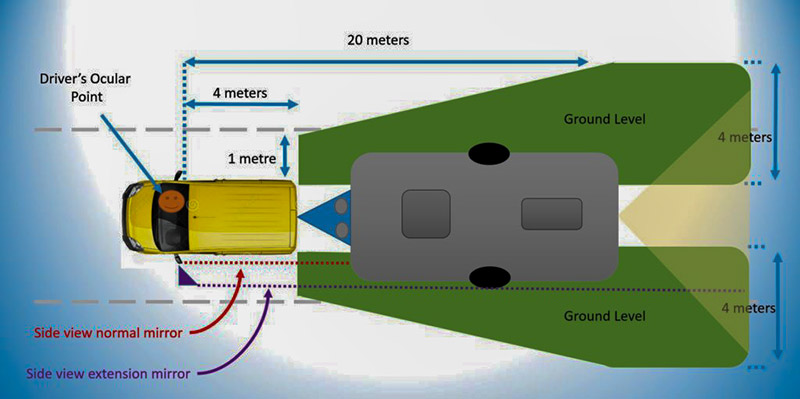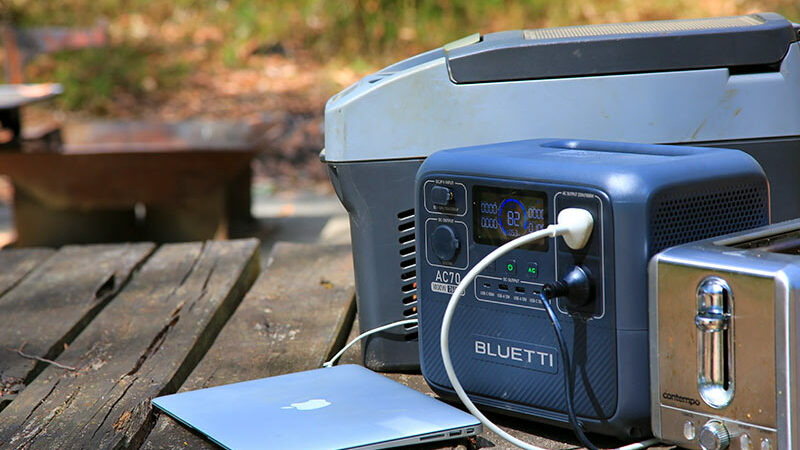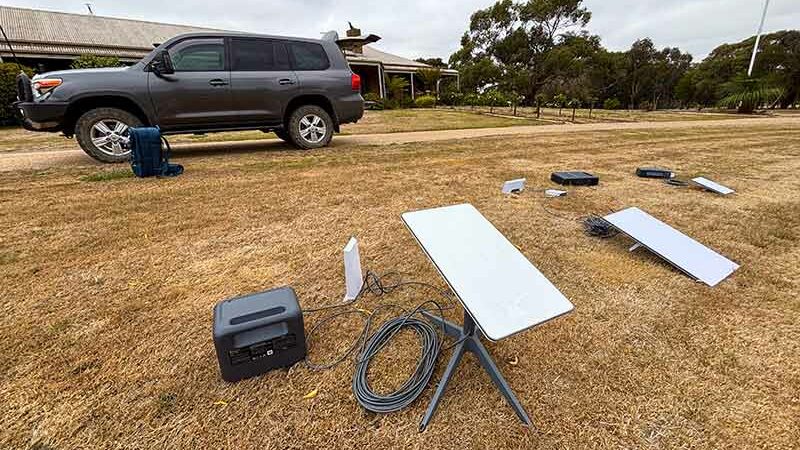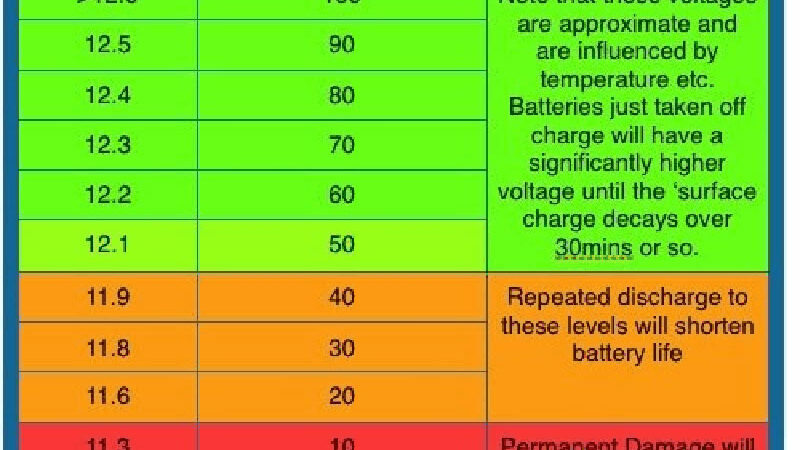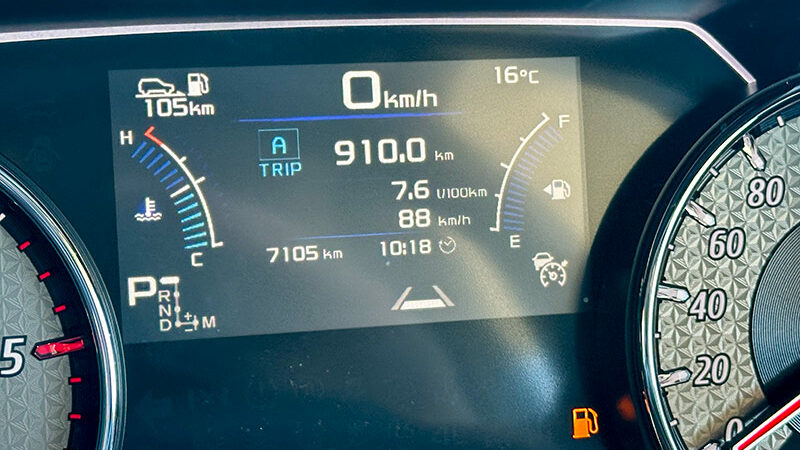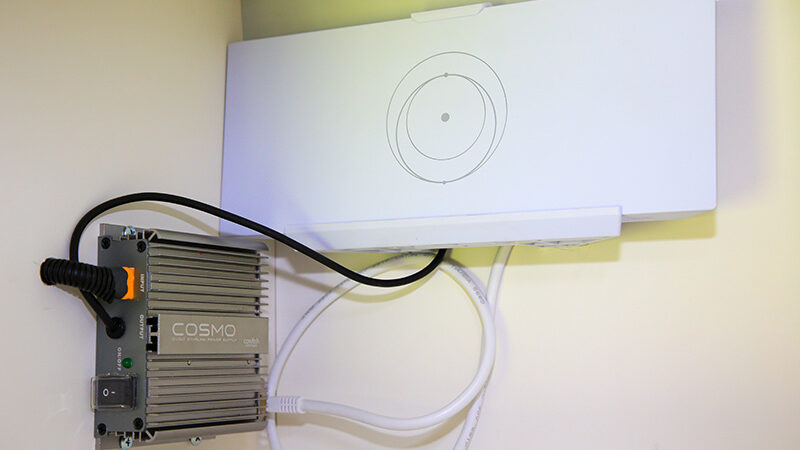Real-World Caravan Towing Advice
I remember the day we picked up our first caravan. In fact, the day is burned into my memory. It began with much anticipation of driving to the dealership and seeing our new caravan for the first time before towing it home. The handover is a bit of a blur but the drive home is what I remember the most.
The fact is, it was terrifying. I had towed trailers before and I had received some driver training but nothing prepared me for towing something as large and cumbersome as a full-size caravan through Melbourne’s peak-hour traffic. Sharing the road with large trucks, impatient drivers and other traffic hazards was a completely different ballgame.
Trust me, if you have never towed anything bigger than a box trailer, the day you pick-up and drive around with your first caravan will be a real eye-opener.
That’s not all. Soon you will have to take to the open roads and tow your caravan through all manner of conditions. Wind, rain and less-than-perfect country roads will make your journey interesting, to say the least. Then, when you arrive at your destination, you will need to get your caravan onto the site, all while people in the peanut gallery watch, critiquing your every move.
But it need not be that bad. We have five top towing tips you can easily take on board and make your first caravanning holiday just a little bit easier and safer.
1. CHANGE YOUR DRIVING HABITS
I know this may sound a bit condescending but hear me out. Most drivers don’t really think too much about what they are doing or about what’s going on around them. They tend to drive almost on autopilot with their eyes fixed on a point about 5m in front of the bonnet of the car. In other words, they have very little situational awareness.
When towing a large caravan, you cannot drive like this. You need to know what’s happening all around you and be in a position to anticipate what potentially dangerous situations you may be driving into. To do that, you need to ensure your eyes don’t focus on a single point on the front of the vehicle. Instead, make a conscious effort to see what’s going on around you.
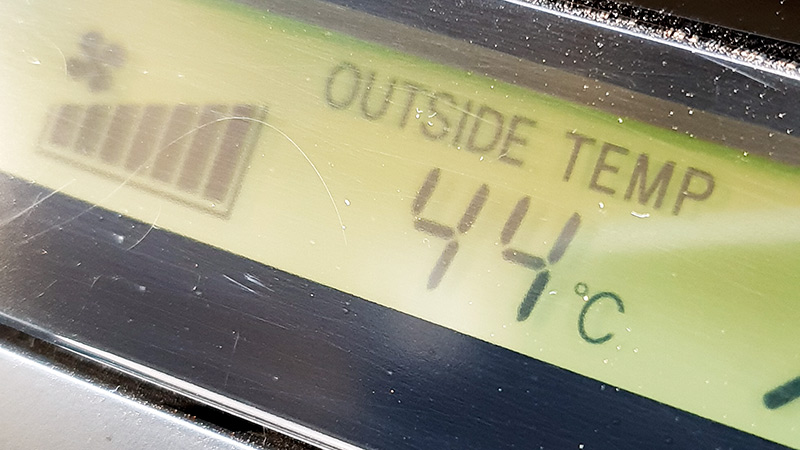
Start by looking at the left of the windscreen and scanning your gaze up along the side of the road, towards the horizon, and do the opposite on the right side of the road. Then check your rearview mirrors from right to left and start the process over again.
This driving technique will enable you to see what potential hazards are approaching, such as driveways and side streets, where other vehicles may pull out in front of you. You will also be able to anticipate any hills and accelerate early to compensate.
You’ll see any sharp corners well in advance and be in a position to slow down for them, with time and distance to spare. The regular checking of mirrors will mean you will notice any build-up of traffic behind you so you can pull over and let them pass when it is safe to do so.
This driving technique will also reduce fatigue, helping to prevent you from falling asleep at the wheel.
2. DRIVE AT A COMFORTABLE SPEED
One of the biggest issues we have in this country is a lack of respect for the speed limit. Drivers are pressured into driving at or above the speed limit, often with catastrophic consequences.
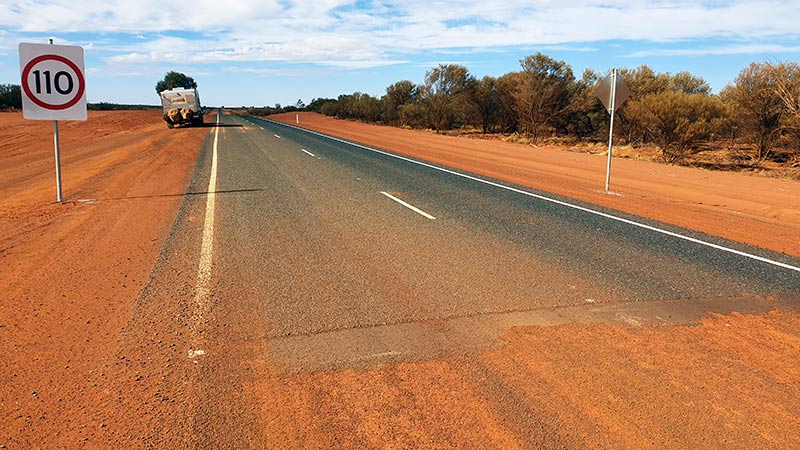
The speed limit is just that: a limit. It is the maximum safe driving speed for that particular section of road as determined by state authorities. Whether you agree with them or not is irrelevant and there is no law that says you must drive at that speed.
Regardless of this, the reality is that when you are towing a large trailer of any kind, every other driver will see you as an obstacle and they will do everything in their power to get in front of you, whether you’re driving at the speed limit or not.
When driving on the open road, we have found the best speed to drive is around 5km/h below the posted speed limit. This means we are not unnecessarily holding up traffic behind us and when another vehicle wants to overtake us, they can do so safely.
I will say one thing. If your rig does not feel comfortable or stable driving at speeds over 80km/h, you really do need to have it checked for correct set-up and weight distribution.
3. TAKE ADVISORY SPEED SIGNS SERIOUSLY
We all know that we need to obey regular speed limit signs, but what about those yellow speed advisory signs you see before a sharp corner or some other traffic hazard?
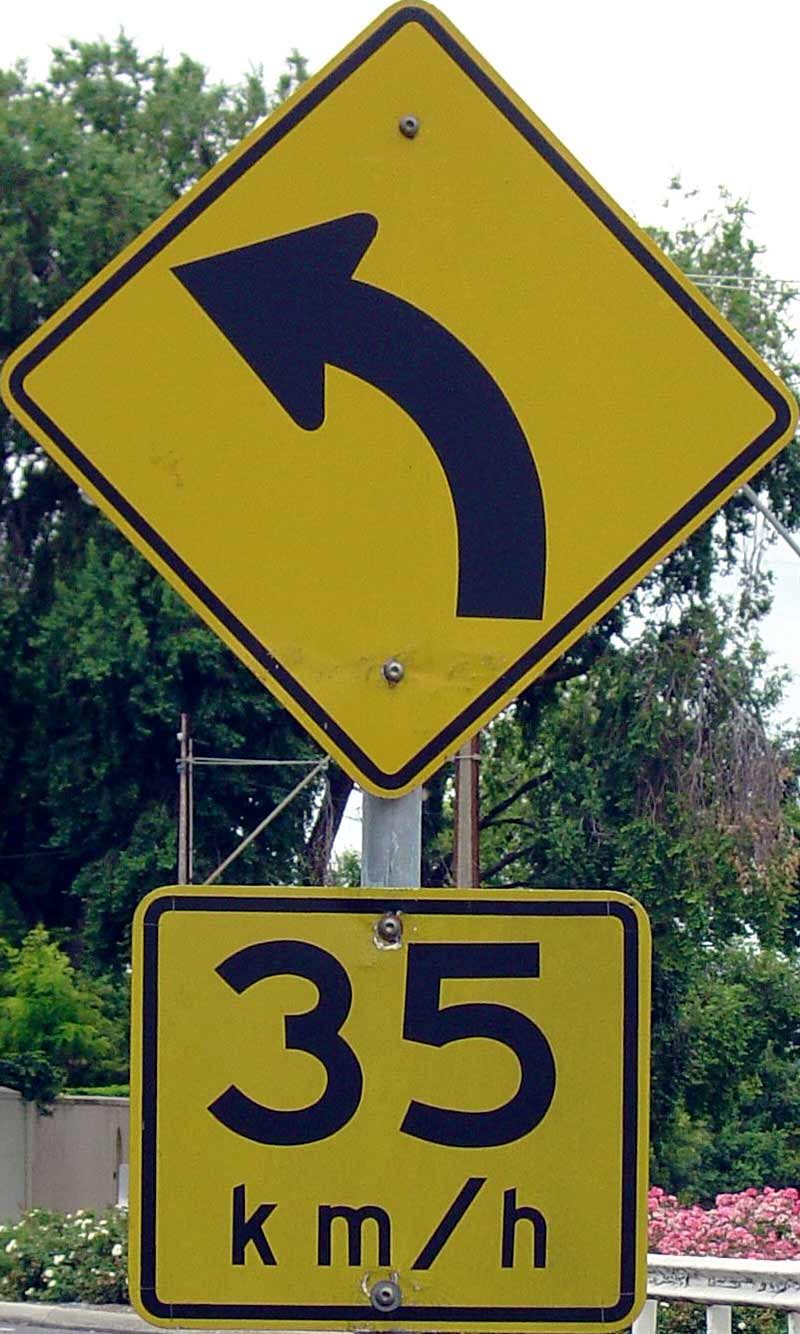
While it may not be the law to obey these speed signs, I can assure you it is a very good idea to take notice of them when towing a big trailer. The people who put these signs in place don’t do it for fun. There is a very good reason for them, such as the frequency of crashes that happen at the location.
If you see one of these speed advisory signs, we strongly suggest you do exactly as they say. For instance, if you take a corner at too high a speed, it will be very difficult to safely slow down midway through once you’re committed.
4. PLAN YOUR TRIP AND TAKE REGULAR BREAKS
We get told all the time that fatigue kills. So much so that it becomes little more than white noise but, let me tell you, when you’re towing a caravan, your tow vehicle will be working hard and so will you. You may be surprised at how quickly fatigue can set in.
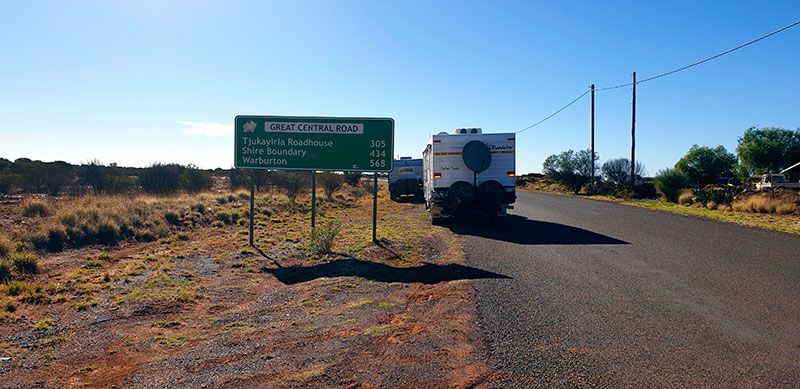
As a general rule, we plan our trips to ensure we are not driving all day or have any unreasonable schedules to meet. If we have to drive for any significant period of time, we take breaks at least every two hours. And by a break, I mean we find a safe place to pull off the road and park our rig. Then we get out of the vehicle and have a good stretch and walk around for at least 10 minutes. You’ll be amazed at how refreshed you’ll feel afterwards.
We would also highly recommend sharing driving duties on long trips. Apart from giving the driver a break, it is good for both parties to be able to drive with a large caravan safely in case one of you is rendered unable to drive.
Given most people take their holidays in the warmer seasons, it is better for you and your vehicle to avoid driving in the heat of the day. We always try to plan our trips so that we are parked for the day by around lunchtime or soon thereafter.
5. WHEN TOWING, DRIVE LIKE OTHER DRIVERS ARE IDIOTS
Do yourself a favour and watch a few videos from dash cams across Australia, taking notice of the sort of driver behaviour that results in crashes. You’ll see so many are the result of someone running a red light, not giving way at an intersection, overtaking on blind corners or not allowing enough room in front of them to stop in time.
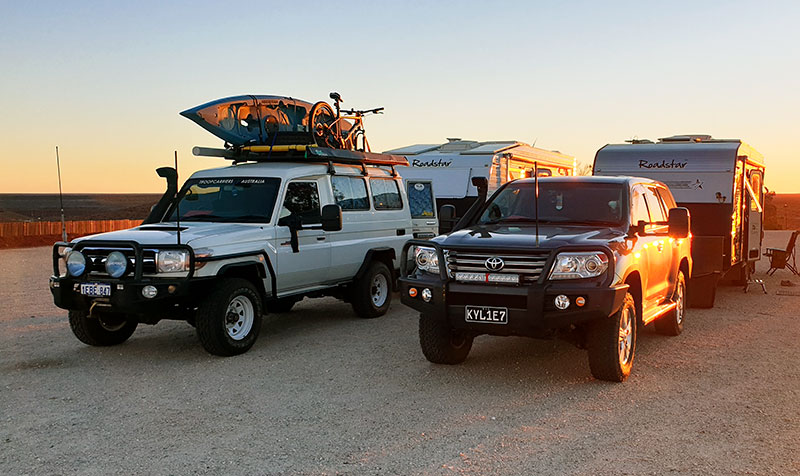
In order to avoid getting caught up in these incidents, try to anticipate this behaviour. If you see a vehicle approaching a side street intersection, be prepared for them to pull out in front of you. Slow down slightly and be ready to take evasive action. Don’t just drive through a green light without first checking to see if anyone approaching the intersection isn’t slowing down to stop. Take roundabouts slowly and be prepared to stop if someone pulls in front of you from the left.
You don’t have to panic at the approach of every vehicle around you. Just take notice of them and don’t assume they will simply do the right thing. Just knowing someone may do the wrong thing might give you sufficient time to react to a potentially dangerous situation.
EXPERT TOWING ADVICE
There are plenty of other tips and trick we and other experienced caravanners could provide, but there’s nothing like getting it from the experts.
If you have never towed a large trailer before, we thoroughly recommend doing a towing course. You’ll learn how to correctly pack and set-up your rig, how to handle it on the open road and how to cope in the event of an emergency.
Even if you believe you’re a good driver and have perhaps towed trailers before, you may learn a thing or two that, one day, may mean the difference between life and death.
The post Real-World Caravan Towing Advice appeared first on GoRV.
Source: https://www.gorv.com.au/real-world-caravan-towing-advice/


